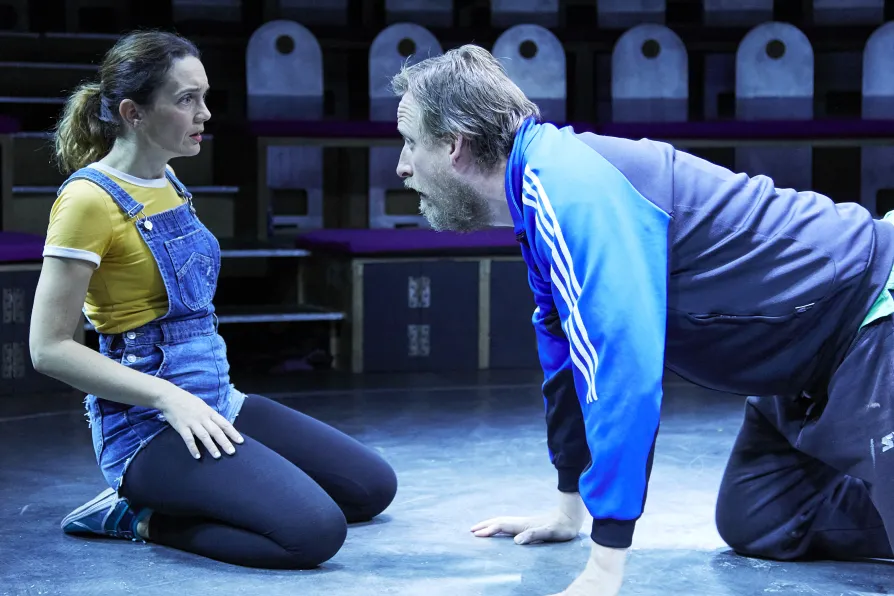STEVE JOHNSON relishes a celebration of the commonality of folk music and its links with the struggles of working people the world over

 FUNNY AND FERAL: Mandy (Eve Steel) and Neil (Neil Bell) in The Political History of Smack and Crack
[The Other Richard]
FUNNY AND FERAL: Mandy (Eve Steel) and Neil (Neil Bell) in The Political History of Smack and Crack
[The Other Richard] IT MIGHT be an exaggeration to claim that there’s a revolution underway in British theatre. But there’s definitely some skilful insubordination going on.
Writers are at the heart of it and Ed Edwards is one of the newer breed of working-class playwrights, though he’s not exactly leading a guerilla force to dismantle the Establishment. He knows how this world works, having earned his stripes writing for radio and TV, authoring six books and making short films for Channel 4 and the BBC.
His latest play The Political History of Smack and Crack may sound like a lecture or, much worse, a workshop. Turns out, it’s a gripping piece of theatre, a classic two-hander, with star-crossed lovers who are funny, feral and fucked-up.
A chronicle of the fallout for communities crushed by the heroin epidemic at the height of Thatcherism, it traces the lives of Mandy and Neil from the epicentre of the riots in 1981 to their present-day survival on the streets of Manchester.

LYNNE WALSH reports from the Women’s Declaration International conference on feminist struggles from Britain to the Far East

Caroline Darian, daughter of Gisele Pelicot, took part in a conversation with Afua Hirsch at London’s Royal Geographical Society. LYNNE WALSH reports

This year’s Bristol Radical History Festival focused on the persistent threats of racism, xenophobia and, of course, our radical collective resistance to it across Ireland and Britain, reports LYNNE WALSH

LYNNE WALSH previews the Bristol Radical History Conference this weekend














